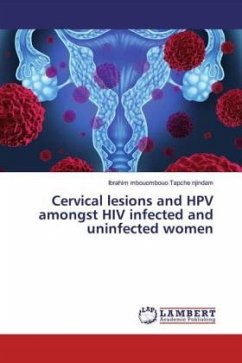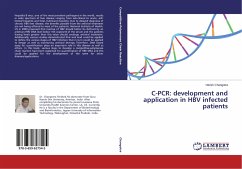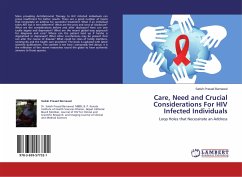
ESBL Producing E. coli Isolated from Urinary Tract Infected Patients
Antibiotic susceptibility among Uropathogenic E. coli (UPEC)
Versandkostenfrei!
Versandfertig in 6-10 Tagen
32,99 €
inkl. MwSt.

PAYBACK Punkte
16 °P sammeln!
Escherichia coli are responsible for up to 80% of urinary tract infections (UTI). It is an example of one such bacterial manifestation that is severely complicated by the emergence of extended spectrum beta-lactamases (ESBLs). ESBL producers are found to be associated with increased morbidity and mortality, especially amongst in- patients in intensive care units. Accurate laboratory detection is important to avoid clinical failure due to inappropriate antimicrobial therapy. These plasmid mediated enzymes mostly evolved via point mutations of the classical TEM-1 and CTX-M -lactamases but other ...
Escherichia coli are responsible for up to 80% of urinary tract infections (UTI). It is an example of one such bacterial manifestation that is severely complicated by the emergence of extended spectrum beta-lactamases (ESBLs). ESBL producers are found to be associated with increased morbidity and mortality, especially amongst in- patients in intensive care units. Accurate laboratory detection is important to avoid clinical failure due to inappropriate antimicrobial therapy. These plasmid mediated enzymes mostly evolved via point mutations of the classical TEM-1 and CTX-M -lactamases but other groups are increasingly prominent, notably the CTX-M types, which evolved via the escape and mutation of chromosomal -lactamases from Kluyvera spp. In this study antibiotic susceptibility analysis was performed using Kirby Bauer disk diffusion method and phenotypic identification for ESBL production was confirmed by phenotypic confirmatory double disk test (PCDDT) following CLSI guidelines. Multiplex PCR for blaCTX-M and blaTEM was performed on the UPEC isolates. 33.33% of total strains expressed blaTEM & blaCTX-M genes individually and 14.28% expressed both genes respectively.












